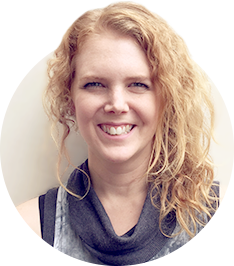The AACBT National Conference Committee are pleased to announce that we are hosting 4 x 1/2 day workshops on Saturday 30 October 2021.
ESPLANADE HOTEL FREMANTLE BY RYDGES (FREMANTLE, WESTERN AUSTRALIA)
OR
VIRTUAL PLATFORM (GATHER.TOWN)
Physical tickets: AACBT Student Member $55, AACBT Member $160, Non-member $225.
Virtual tickets: AACBT Student Member $25, AACBT Member $50, Non-member $100.
Tickets are on sale now!
REGISTER via the ticketing page
(use the drop down arrow on the main ticketing page to select your workshop – the virtual workshops are at the bottom of the list)
This is the Saturday program, and the workshop options are:
| Workshop 1 – Scientia Professor Richard Bryant (Trauma) [9 AM AWST] – virtual presenter | Workshop 2 – Dr Melissa Ree (Sleep) [9 AM AWST] |
| Workshop 3 – Dr Georgie Paulik-White (Voices) [1:00 PM AWST]
please note the earlier start time |
Workshop 4 – Mr Paul Jeffery & Dr Clair Lawson (Private Practice) [1:30 PM AWST] |
Scientia Professor Richard Bryant
University of New South Wales
Treating trauma in high-risk populations
First responders experience PTSD more than any other profession in the community. However, they can be the most difficult to treat. At the same time, they can be the most rewarding people to work with. Clinicians wishing to work with first responders with PTSD should be aware of the latest evidence and current strategies for optimizing how we assess and treat these presentations.
This workshop provides an overview of assessing and treating PTSD in first responders, such as police, firefighters, and ambulance personnel. This material is also relevant to anyone managing military/veteran personnel with PTSD. The workshop will commence with an overview of current knowledge of PTSD in first responder populations, the nature of their PTSD, and common comorbidities. The workshop will then review key assessment strategies that need to be considered in assessing PTSD in first responders. Treatment strategies will then be outlined, with practical discussion of how to adapt trauma-focused cognitive behaviour therapy with this population. Special consideration will be on obstacles to treatment, which are common when treating PTSD in first responders. These include emotional numbing, dissociation, comorbidities, moral injury, substance abuse, ongoing trauma, and organisational stressors. Special attention will be giving to treating PTSD in the context of compensation-seeking and medical retirement, and working with first responders’ employers in the context of treating their PTSD.
Key Learning Objectives
- Participants will be able to describe the extent and nature of PTSD in first responders
- Participants will be able to articulate the key assessment strategies for PTSD in first responders
- Participants will be able to describe the major treatment strategies for PTSD in first responders
Assumed Background Knowledge and Experience of Attendees
Intermediate: Working knowledge of topic area; e.g., treated a few cases
Implications / Applications of Learning for Clinical Practice
The workshop aims to impart to participants the knowledge and skills to assess and treat PTSD in first responders. The major lessons from the workshop will be developing skills and strategies for assessing PTSD in the context of first responder work, and tailoring PTSD treatment for first responders. The focus will be on practical strategies that clinicians can use with challenging presentations that are common in first responders, including issues of trust and rapport with this population.
Duration & Format / Training Modalities
This workshop has 3 hours CPD, and includes morning tea and lunch for physical delegates.
The day will include lecture format, experiential practices, and clinical examples.
This workshop will be presented by a virtual presenter to a virtual and physical audience.
References – readings
Bryant, R.A. (2021). Treating PTSD in First Responders. New York: American Psychological Association.
Bryant, R.A., Kenny, L., Rawson, N., Cahill, C., Joscelyne, A., Garber, B., Tockar, J., Dawson, K., & Nickerson, A. (2019). Efficacy of exposure-based cognitive behavior therapy for posttraumatic stress disorder in emergency service personnel: a randomised clinical trial. Psychological Medicine, 49, 1565-1573.
Berger, W., Coutinho, E.S., Figueira, I., Marques-Portella, C., Luz, M.P., Neylan, T.C., Marmar, C.R., & Mendlowicz, M.V. (2012). Rescuers at risk: a systematic review and meta-regression analysis of the worldwide current prevalence and correlates of PTSD in rescue workers. Social Psychiatry and Psychiatric Epidemiology 47, 1001-1011.
Dr Melissa Ree
J&R Psychology, Sleep Matters & UWA

CBT-Insomnia: why is it important? What is it? How do I do it?
Do your clients often describe poor sleep? Unsure if this is important to treat? Unsure how to manage it? If you answered ‘yes’ to any of these questions, this may be a great workshop for you. Learn why insomnia is both important to treat and often ‘treatable’ and come away with skills to integrate your new knowledge into your practice.
Over half the adult population who have a psychological disorder also have a sleep disorder. Provision of sleep disorder treatments has the capacity to optimise treatment outcomes, with robust research evidence demonstrating that treating the sleep disorder can enhance quality of life, treatment response, recovery and relapse rates. The recommended first line treatment for the most common sleep disorder, Insomnia, is CBT-I, with 70-80% of clients responding well. However, most health professionals are not confident in offering this treatment.
This workshop will introduce participants to the field of Behavioural Sleep Medicine which uses evidence-based non-pharmacological therapies (with a focus on CBT-Insomnia) to treat sleep disorders such as insomnia and circadian rhythm disorders. We go beyond sleep hygiene (which by itself is not an evidence-based treatment).
Concepts covered will include:
- Intro to sleep science: sleep myths, what is sleep, what is healthy sleep and how sleep is regulated.
- The 3 barriers to sleep and how to recognise and work with these in therapy.
- The benefits of treating sleep difficulties such as insomnia in the context of psychological care
- Common medications used for sleep disturbance
- CBT-Insomnia which is the first line recommended treatment for insomnia.
- Effectiveness of CBT-I
- Description and practical application of key CBT-I components
- Mention of ACT and Mindfulness based treatment strategies alongside CBT
- Bright light therapy and melatonin to treat circadian rhythm disruptions.
- Using a sleep log (analyse your own sleep log data if you wish).
- Common assessment tools
This interactive half day workshop with be an introduction to behavioural sleep medicine and will include practical exercises and discussion of key treatment strategies that are unique to CBT-I.
Knowledge and skills will apply across a wide range of psychology presentations and contexts: more and less severe psychological presentations, hospital, private practice, the workplace.
Key Learning Objectives
- Understand the opportunities at hand in screening for and treating sleep disturbance to enhance client outcomes
- Develop a science-backed understanding of sleep that has practical applications for delivery of psychoeducation and treatment planning
- Understand theory and practical application of key CBT-Insomnia strategies
- Have an awareness of treatment approaches to circadian rhythm disorders
Assumed Background Knowledge and Experience of Attendees
This workshop is best suited to intermediate/advanced CBT practitioners as we cover CBT basics, rather it will assume knowledge of these. Being new to the field of sleep, however, is fine!
Implications / Applications of Learning for Clinical Practice
Take-home information includes:
- Awareness of the role of sleep disturbance in psychological presentations
- Brief screening for insomnia and other common sleep disorders (OSA, circadian rhythm disorders).
- Taking active steps to treat the sleep disturbance (either by referring on or treating it yourself).
- Effective use of the sleep log in assessment and treatment
- Dispel common myths about sleep
- Deliver key CBT-I components
- Awareness of the appropriate use of bright light therapy and melatonin
Duration & Format / Training Modalities
This workshop has 3 hours CPD, and includes morning tea and lunch for physical delegates.
The day will include lecture format, experiential practices, and clinical examples.
This workshop will be presented in a physical environment to a virtual and physical audience.
References – readings
Waters, F., Ree, M. J., & Chiu, V. (2017). Sleep, its Regulation, and Barriers to Good Sleep. In Delivering CBT for Insomnia in Psychosis: A clinical guide (pp. 39-49). Routledge-Cavendish. (click this Google drive link to request access)
Baglioni, C., Altena, E., Bjorvatn, B., Blom, K., Bothelius, K., Devoto, A., … & Riemann, D. (2020). The European Academy for Cognitive Behavioural Therapy for Insomnia: An initiative of the European Insomnia Network to promote implementation and dissemination of treatment. Journal of sleep research, 29(2), e12967.
Freeman, D., Sheaves, B., Waite, F., Harvey, A. G., & Harrison, P. J. (2020). Sleep disturbance and psychiatric disorders: the non-specific as essential in understanding and treating mental ill health. Lancet Psychiatry, 7(7), 628–637.
Reed, D. L., & Sacco, W. P. (2016). Measuring sleep efficiency: what should the denominator be? Journal of clinical sleep medicine, 12(2), 263-266.
Dr Georgie Paulik-White
Clinical Director, Perth Voices Clinic; Professional Practice Fellow, School of Psychological Science, University of Western Australia; Adjunct Senior Lecturer, Discipline of Psychology, Murdoch University

Treating trauma using Imagery-rescripting in individuals who hear voices or have psychosis
Imagery Rescripting is an advantageous and effective therapy for trauma affected voice hearers. Attendees will develop a deeper understanding and fine tuning of skills in the delivery of Imagery Rescripting to this client group, with the aim to reduce trauma intrusions and voice distress and frequency.
Despite a strong link between trauma and voices (‘auditory hallucinations’), there have been no trials of psychological trauma interventions in this transdiagnostic population. High dropout rates in trials of prolonged exposure in psychosis have been linked to anxiety around reliving the hot parts of trauma. Imagery Rescripting potentially overcomes this potential barrier as it does not require the prolonged reliving of the most intense part of the memory, and previous studies have shown preliminary evidence in its effectiveness in reducing trauma intrusions, voice distress and voice frequency in trauma affected voice hearers (Paulik, Steel & Arntz, 2019).
This advanced workshop will refine your clinical skills in the delivery of Imagery Rescripting when treating trauma in individuals who hear voices and/or have psychosis. This workshop includes education modules, videos, case illustrations, demonstrations of therapy techniques, group discussions, and experiential role plays.
Key Learning Objectives
- To understand the links between voice hearing and trauma
- Gain knowledge and skills around the use of Imagery Rescripting to treat trauma in voice hearers
- Develop the ability to problem solve obstacles to Imagery Rescripting when working with clients who hear voices, especially dissociation
Assumed Background Knowledge and Experience of Attendees
This workshop is aimed at clinicians with some prior knowledge and skills in Imagery Rescripting.
Implications / Applications of Learning for Clinical Practice
Clinicians working with trauma affected voice hearing clients will understand more about how trauma may underly voices, and thus how to assess and formulate more effectively. They will advance their skills in Imagery Rescripting – learning how to adapt protocols and delivery to meet the needs of clients who hear distressing voices which are linked to past trauma.
Duration & Format / Training Modalities
This workshop has 3.75 hours CPD, and includes lunch and afternoon tea for physical delegates.
The day will include lecture format, experiential practices, and clinical examples.
This workshop will be presented in a physical environment to a virtual and physical audience.
References – readings
Paulik, G., Steel, C., & Arntz, A. (2019). Imagery rescripting for the treatment of trauma in voice hearers: A case series. Behavioural and Cognitive Psychotherapy, 1-7.
Arntz, A. and Weertman, A. (1999). Treatment of childhood memories: theory and practice. Behaviour Research and Therapy, 37, 715–740.
Hardy, A. (2017). Pathways from trauma to psychotic experiences: a theoretically informed model of posttraumatic stress in psychosis. Frontiers in Psychology, 8, 697–717.
Mr Paul Jeffery1 & Dr Clair Lawson2
1Jeffery & Ree Clinical Psychology; 2Lawson Clinical Psychology & Clinic Mastery


Operating Effectively as a Psychologist in a Private Practice Setting
Delivering effective and efficient psychological services within a profitable business model can be challenging for private practitioners. This workshop will provide attendees with strategies to overcome common challenges of delivering services in a commercial environment.
As psychologists working across sectors (including the private sector), a key desire is usually to be able to help people as effectively as possible with the skills we have. This workshop will highlight the benefits and the challenges of trying to marry together the desire to provide evidence-based therapy while also working effectively within a commercial environment. The presenters will share lessons learned from a combined 31 years of working in private practice while during the interactive sections of the workshop participants will be encouraged to share their own experiences, reflections and aspirations. Attendees will gain insights into what is needed to flourish and succeed in the sector at different stages of private practice development. There will be opportunities to discuss concerns with peers, to obtain resources and practical advice to help you work efficiently and effectively in private practice.
Key Learning Objectives
- Understand the benefits and challenges of working in private practice settings
- Understand the challenges of implementing evidence-based practice within a commercial setting
- Obtain skills to work effectively and efficiently in private practice
Assumed Background Knowledge and Experience of Attendees
This workshop is suitable for attendees at any stage of their private practice development.
Implications / Applications of Learning for Clinical Practice
Attendees should be more confident in identifying suitable pathways for themselves, including setting up their own practices, knowing what to look for if seeking work in an established setting, helping to shape and improve the way things are done or developing a sense of how they might grow. It is hoped that this ultimately improves services for the community and maintains the good standing of mental health service delivery.
Duration & Format / Training Modalities
This workshop has 3 hours CPD, and includes lunch and afternoon tea for physical delegates.
The day will include lecture format, experiential practices, and clinical examples.
This workshop will be presented in a physical environment to a virtual and physical audience.
References – readings
TBA

